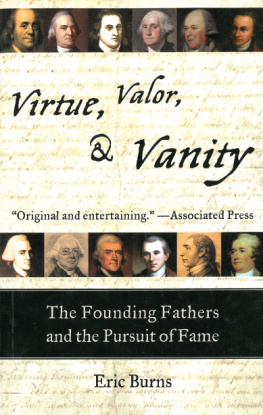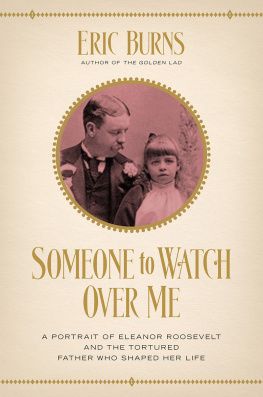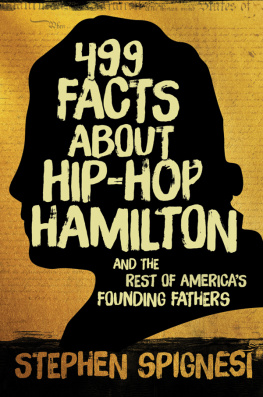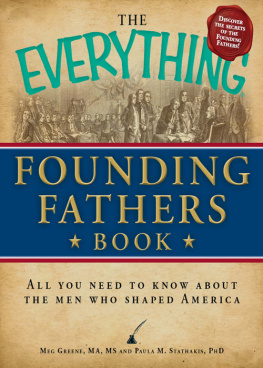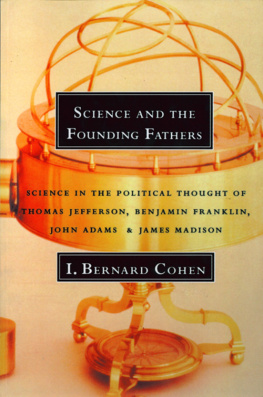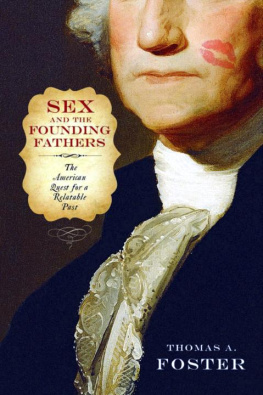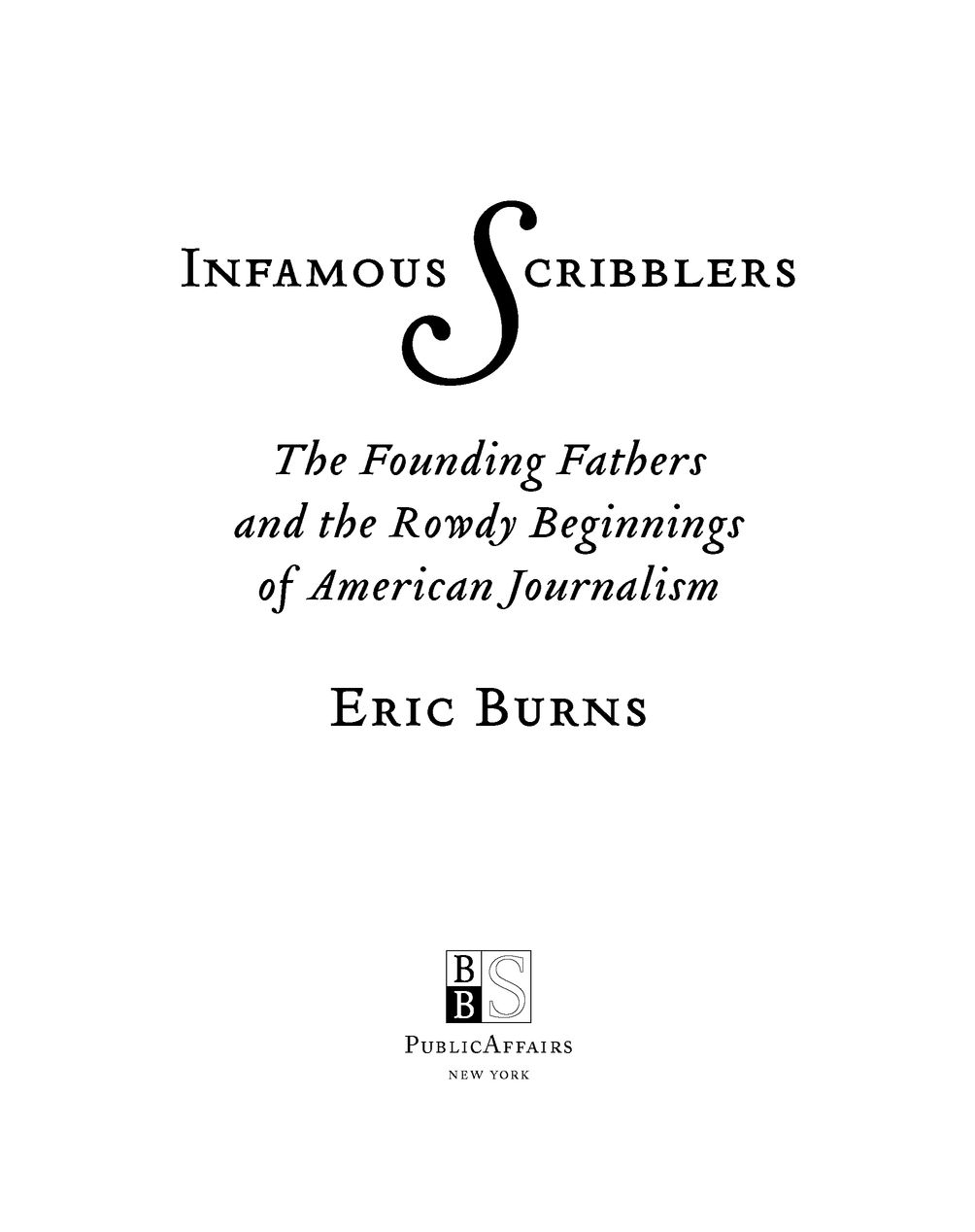Table of Contents
ALSO BY ERIC BURNS
NONFICTION
Broadcast Blues
The Joy of Books
The Spirits of America: A Social History of Alcohol
The Smoke of the Gods: A Social History of Tobacco
FICTION
The Autograph
TO
Dianne Wildman
FOR 25 YEARS OF INDISPENSABILITY
A NOTE TO READERS
EIGHTEENTH-CENTURY ENGLISH is a notoriously whimsical language, especially as it appears in newspapers. It is as if printers thought of their pieces of type as toys and were determined to play with as many as possible, as often as possible, on their pages. And so capital letters pop up where they are least expected. Italics materialize where they had seldom materialized before and have not shown themselves since. Commas and colons and semicolons seem sprinkled between the words, rather than placed with a purpose. The spelling is recognizable but sometimes requires the author who reproduces it to use an explanatory [sic], which means, Dont blame me; it was like this when I found it. And then there is the occasional sentence that runs on so long and so ornately that the modern reader finds himself smiling and catching his breath at the same momentthe whole toy chest dumped onto the printing press at once.
Because of these flights and variations, a number of historians who write about the colonial era translate as they go along, rendering a passage in more modern form, rooting out at least some of the idiosyncrasies.
I have decided not to. It seems to me that altering the language of the Founding Fathers and their contemporaries as well as those who immediately preceded them would be presumptuous, or worse, counterproductive. Why edit the charm and authenticity from another eras journalism? Why not declare it a national treasure and preserve it as originally constructed? Why not embrace the differences, however small, between yesterday and today?
In a few cases, though, I have been thwarted. I have had to rely on secondary sources that provided their citations in already translated form. These passages, along with those of the vast majority of the quoted material that comes from primary sourcesthe newspapers and other publications of the periodare identified in the notes at the end of this book.
About my own use of capital letters: The words Federalist and Republican are almost always capitalized when they refer to our nations first two political partiesor more precisely, to the two groups that were the forerunners of our modern two-party system. In the following pages, I use the terms more generically, lowercased. My federalist is someone who believed in a strong central government and close ties with Britain but did not necessarily attend meetings to promote those goals. My republican, similarly free of membership obligations, insisted that power should reside primarily with the states and that France was a more natural ally for the United States than the motherland.
I use the terms federalist and republican, in short, as I might use the words liberal and conservative if I were writing about the presentto refer to individuals and their ideas, not organized movements and their battle plans. It is not as small a distinction as it might seem; later in the book, I will refer to republican newspapers well before the existence of the Republican Party.
I should also point out as I begin that early American papers had a habit of changing their names from time to time, sometimes to signify new ownership, sometimes to announce a new editorial philosophy by the old owners, sometimes to signal the desire for a fresh start or a more successful venture. A gazette added a country journal to its masthead for a few months or years; a journal added a commercial advertiser or general advertiser or a marine intelligencer. One publication even tacked on A Ladys and Gentlemans Miscellany, even though its prose was often unsuitable for either of the title characters.
For the sake of convenience, both yours and mine, I refer to the publications in almost all cases by their most basic titles.
ERIC BURNS, Westport, Connecticut
INTRODUCTION
Inappropriate Behavior
IT WAS THE BEST OF TIMES, it was the worst of journalismand it is no small irony that the former condition led directly to the latter, that the golden age of Americas founding was also the gutter age of American reporting, that the most notorious of presses in our nations history churned out its copy on the foothills of Olympus. The Declaration of Independence was literature, but the New England Courant talked trash. The Constitution of the United States was philosophy; the Boston Gazette slung mud. The Gazette of the United States and the National Gazette were conceived as weapons, not chronicles of daily events; the two of them stood masthead to masthead, firing at each other, without ceasing, without blinking, without acknowledging the limitations of veracity. Philadelphias Aurora was less a celestial radiance than a ground-level reek, guilty of taking a line that would have been regarded as treasonable in any later international conflict. And Porcupines Gazette, the Auroras sworn foe, was as barbed as its namesake.
There were, of course, exceptions. Some journalism of the colonial era was cordial: Benjamin Franklins pieces, especially in the Pennsylvania Gazette, were witty and insightful and, more often than not, absent of malice in any form.
Some journalism was thoughtful: Alexander Hamilton, James Madison, and John Jay collaborated on The Federalist Papers, first published in New Yorks Independent Journal, and they were as scholarly a collection of essays as has ever appeared in an American newspaper. Thomas Paine wrote with fiery perception, John Adams with a stiff-collared eloquence, and John Dickinson, the so-called Pennsylvania Farmer, with a lawyers sharply reasoned clarity.
Some journalism was courageous: John Peter Zenger did not write at all but was a publisher of such uncommon and unwavering principle that he would blaze a trail for all who followed.
Some journalism was soporific: John Campbell produced so lifeless and irrelevant a paper for the citizenry of Boston that had it not started early, lasted long, and begun the most disreputable of all forms of American advertising, it would not even be remembered today.
And some journalism was obsequious: on the occasion of George Washingtons sixty-sixth birthday, the Pittsburgh Gazette joyfully referred to the sublime terms in which he was being feted, remarking on the radiance of his virtue and intelligence. It was as if the Gazette were doing penance for the censures it pronounced on others more commonly.
But Sam Adams was not an exception; it was he who slung the mud from the offices of the Boston Gazette, a warmonger in journalists attire, a man even more devious outside the print shop than within. James Rivington, of


